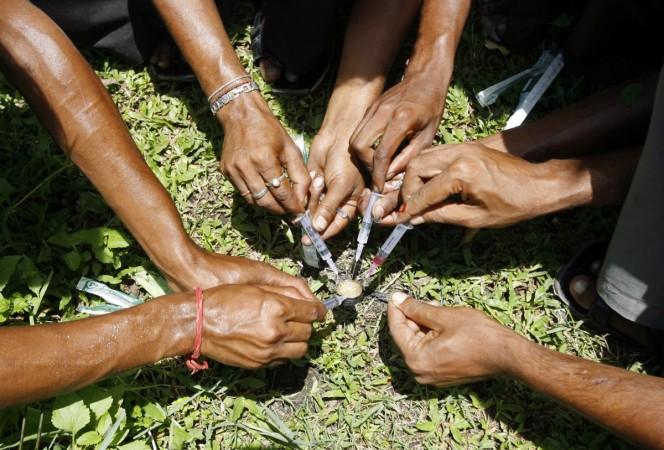
At least one person booked on drug charges dies every four days either in prison or police station in Punjab, the Indian Express reported after analysing the FIR details from over the last two years. The figures available from the worst-affected regions in the state also revealed that an average of 25 drug addicts are booked every day, said the report.
At least 86 people charged under the Narcotic Drugs and Psychotropic Substance (NDPS) Act have died in prisons in 2015 while 88 died in 2014, according to the daily, which acquired the data till April 30 this year under the Right to Information (RTI) Act.
It further said at least 40 percent of the 22,691 men and women locked in the jails in the affected areas are booked under the Narcotic Drugs and Psychotropic Substances (NDPS) Act. Besides, the prisons are also in a bad shape.
While most of the jails are overcrowded, the care and support system in many of these are slacking, said the report, adding that as many as 3,238 prisoners have been lodged in a jail having a capacity of only 1,665. Of the over three thousand inmates, 1,232 are facing drug charges.
"Our de-addiction centre started with 25 beds. But we had to expand our capacity to more than 400 after the government launched the drive against drug peddlers in 2014. Most of the peddlers were drug addicts," Dr Amritpal Singh Nibber, who is now employed as medical officer at Khadoor Sahib Civil Hospital.
The centre he had started in the prison does not have a full-time doctor, a psychiatrist and ward boys or paramedical staff either.
The crackdown in 2014
The Punjab government ordered a massive crackdown in May 2014 after being accused of failing to tackle the drug menace in the state. The police arrested 17,068 people in 2014 and another 11,593 till December 2015, according to another IE report.
The national daily got the data after investigations into the 6,598 FIRs it obtained under the RTI Act last year. The FIRs were registered between Jan. 1 to Dec. 31, 2014, under the NDPS ACT at 152 police stations across 28 police districts of Punjab.
"Those who have been arrested were merely small-time peddlers. No drug lord worth his name has been put behind bars. The crackdown was absolutely flawed and done to make up the numbers. It took place without any foresight and planning. Addiction is a sickness like any other disease and there is no point in putting addicts behind bars," former DGP (Prisons) Shashi Kant said.
"Drugs availability inside jails an open secret"
Even as the state put several drug peddlers and addicts behind the bars following the crackdown, it apparently failed to tackle the problem inside the prisons. The IE sources and experts said drugs are easily available inside some of the jails in the state.
The Kapurthala prison authorities seized at least 308 syringes on May 9 while conducting a raid in the jail.
"The availability of drugs inside Punjab's jails is an open secret. A de-addiction centre is useless so long as drugs are easily available inside. Who were using those syringes in Kapurthala jail?" a health department official told IE on condition of anonymity.
One of the inmates, whose cousin Surjeet Singh allegedly committed suicide inside the Faridkot jail in December last year, also said drugs were "freely" available in the prison. "He (Surjeet) must have become an addict inside jail. Surjeet and I were in jail during the same time and he use to tell me drugs were freely available inside," the inmate Balkar Kaur told IE.
However, superintendent of Faridkot jail Balkar Singh Bhullar refuted the claim and said Surjeet was depressed.
These reports on Punjab's drug problem emerge amid the controversy over the film "Udta Punjab" that highlights the drug menace in the state. The Central Board of Film Certification (CBFC) reportedly demanded that references to the state, cities and districts be removed from the film. The filmmakers have approached the Bombay High Court against the CBFC's demands.














